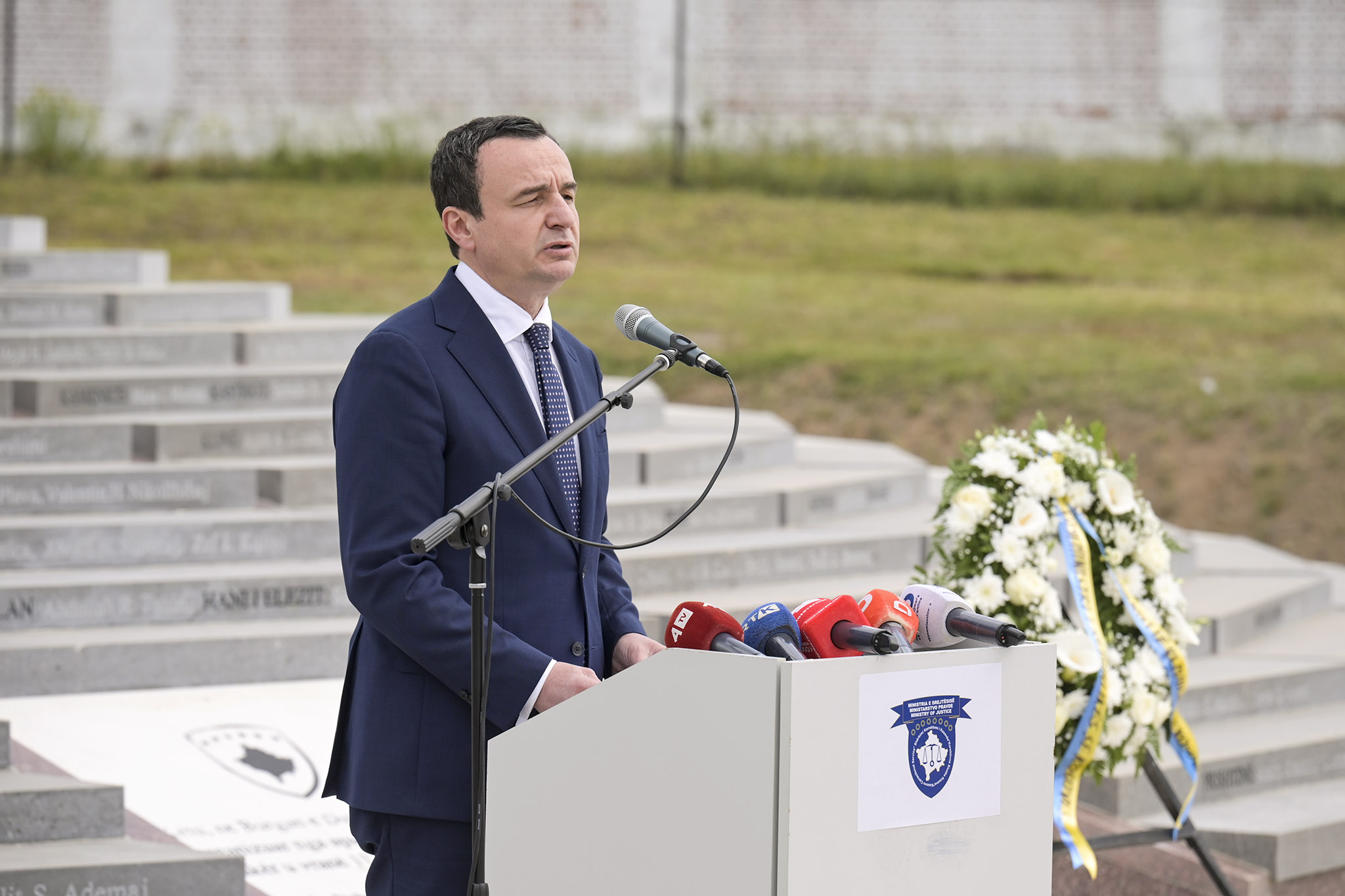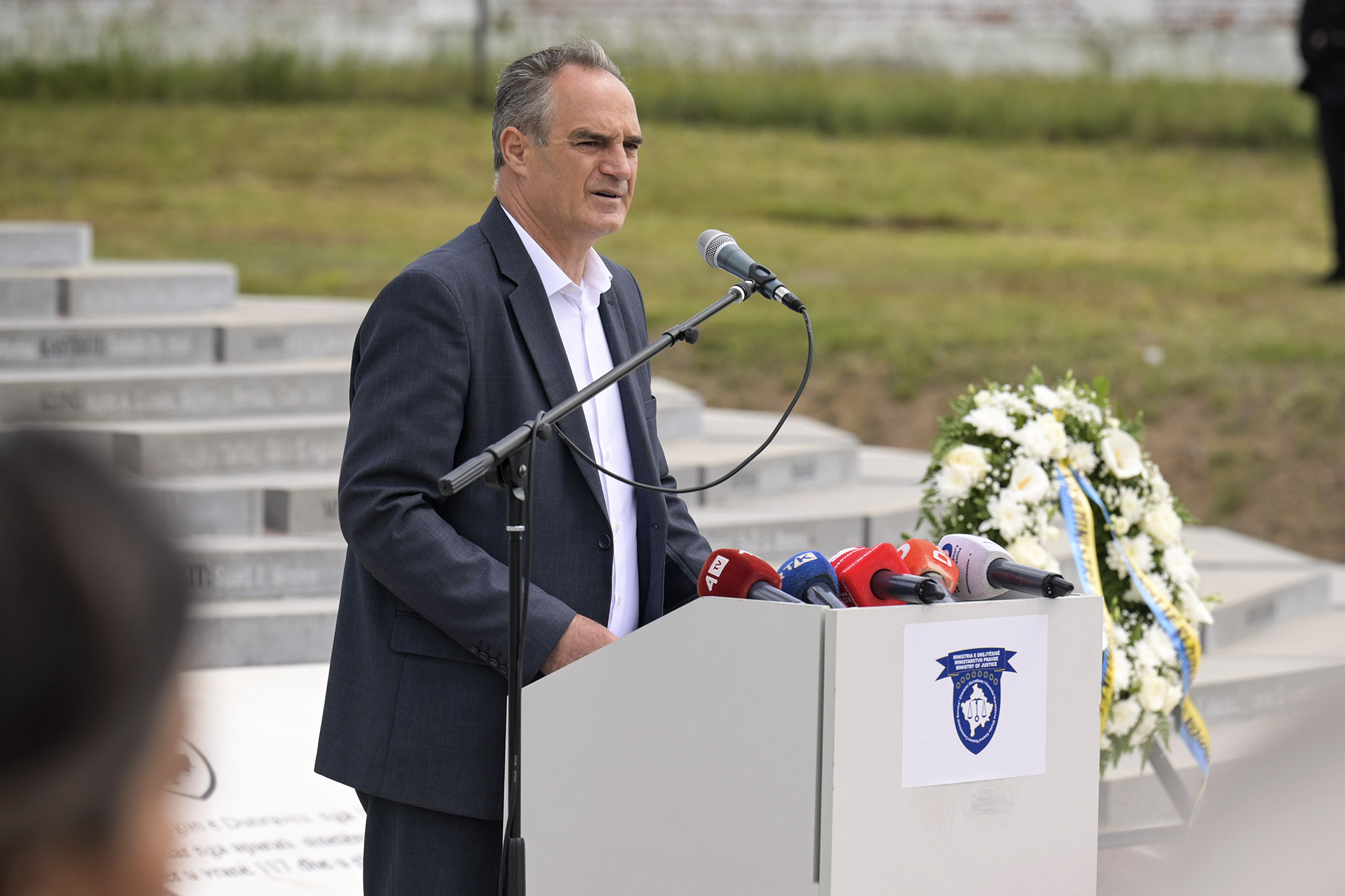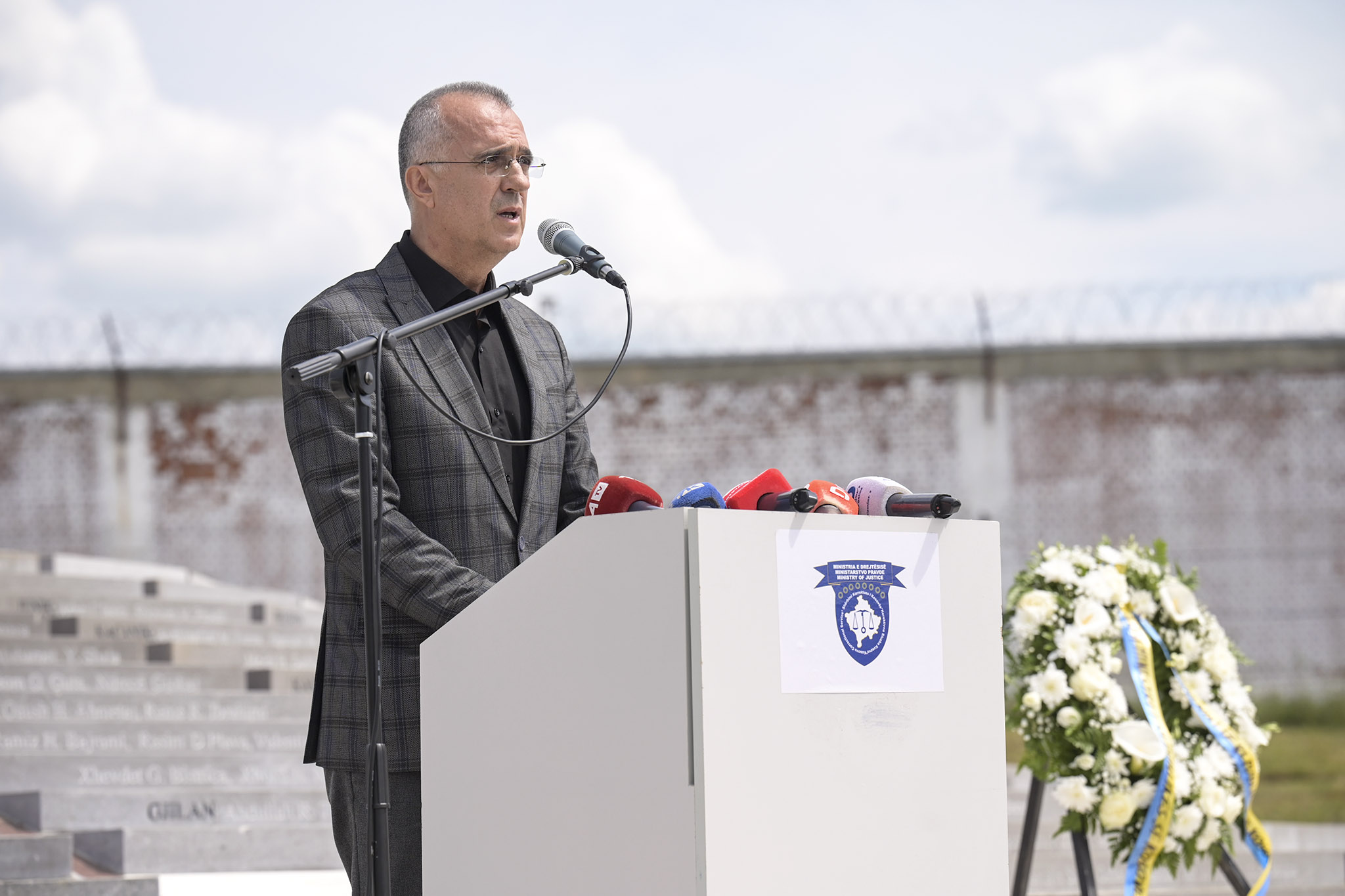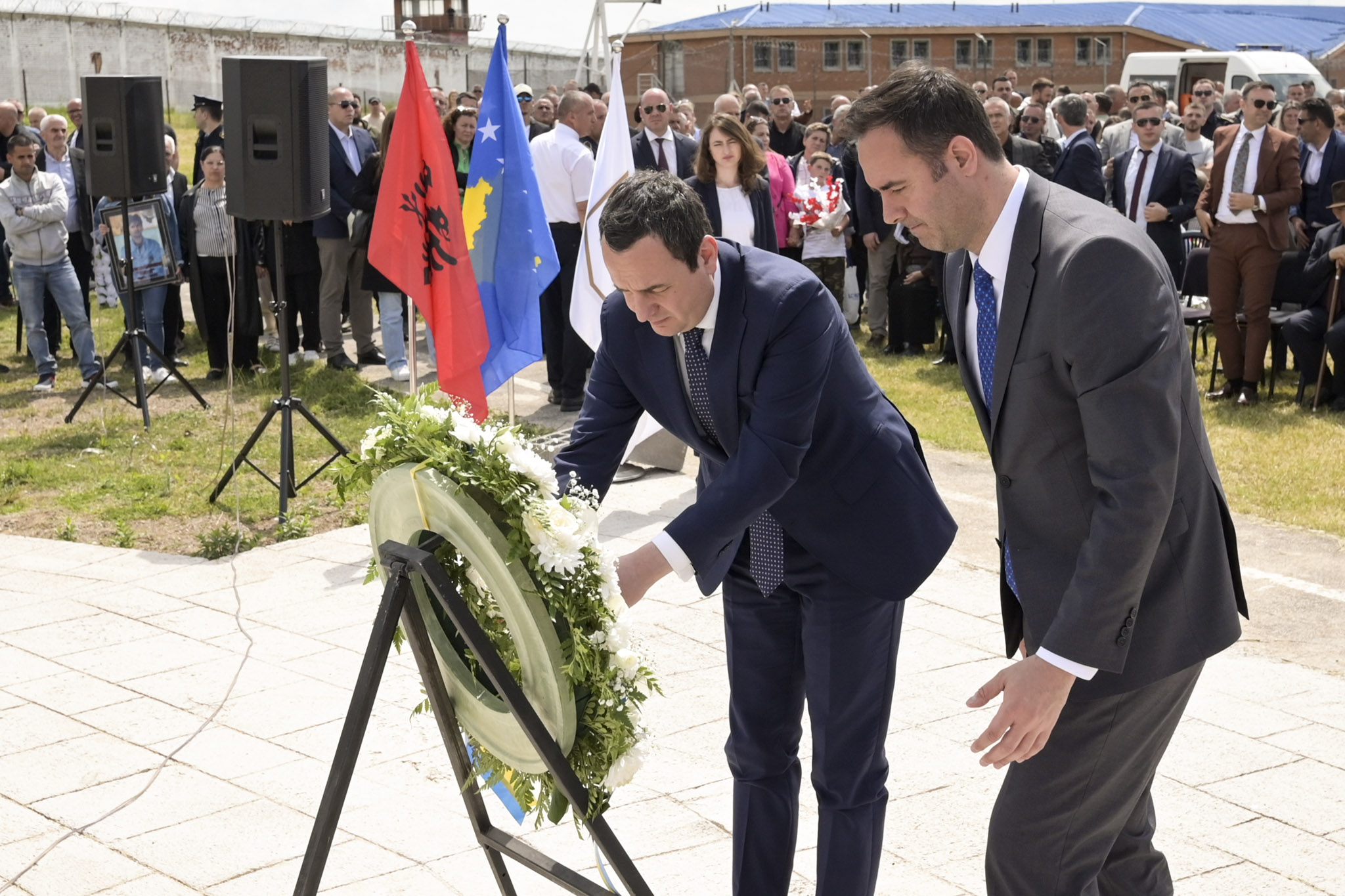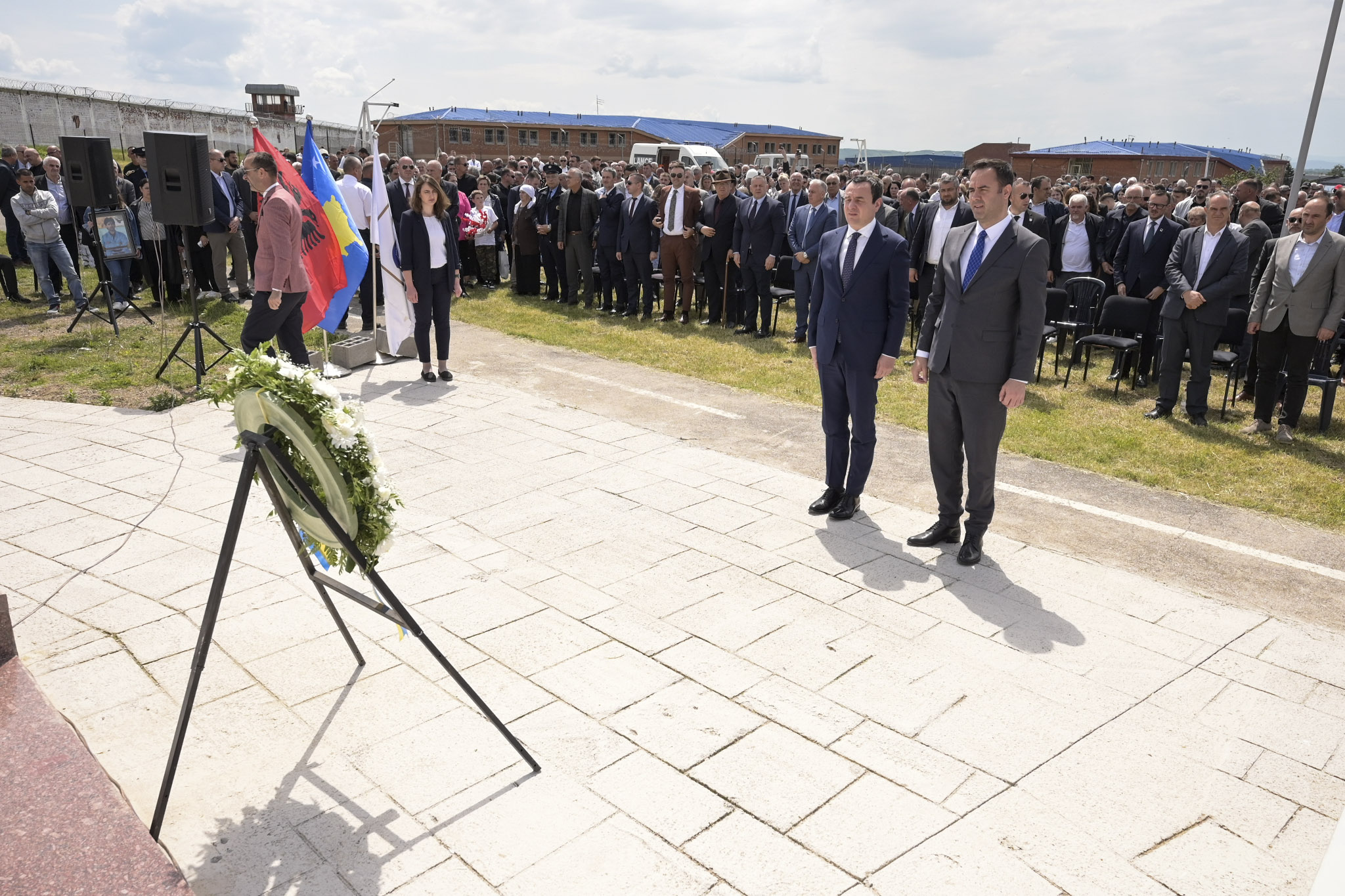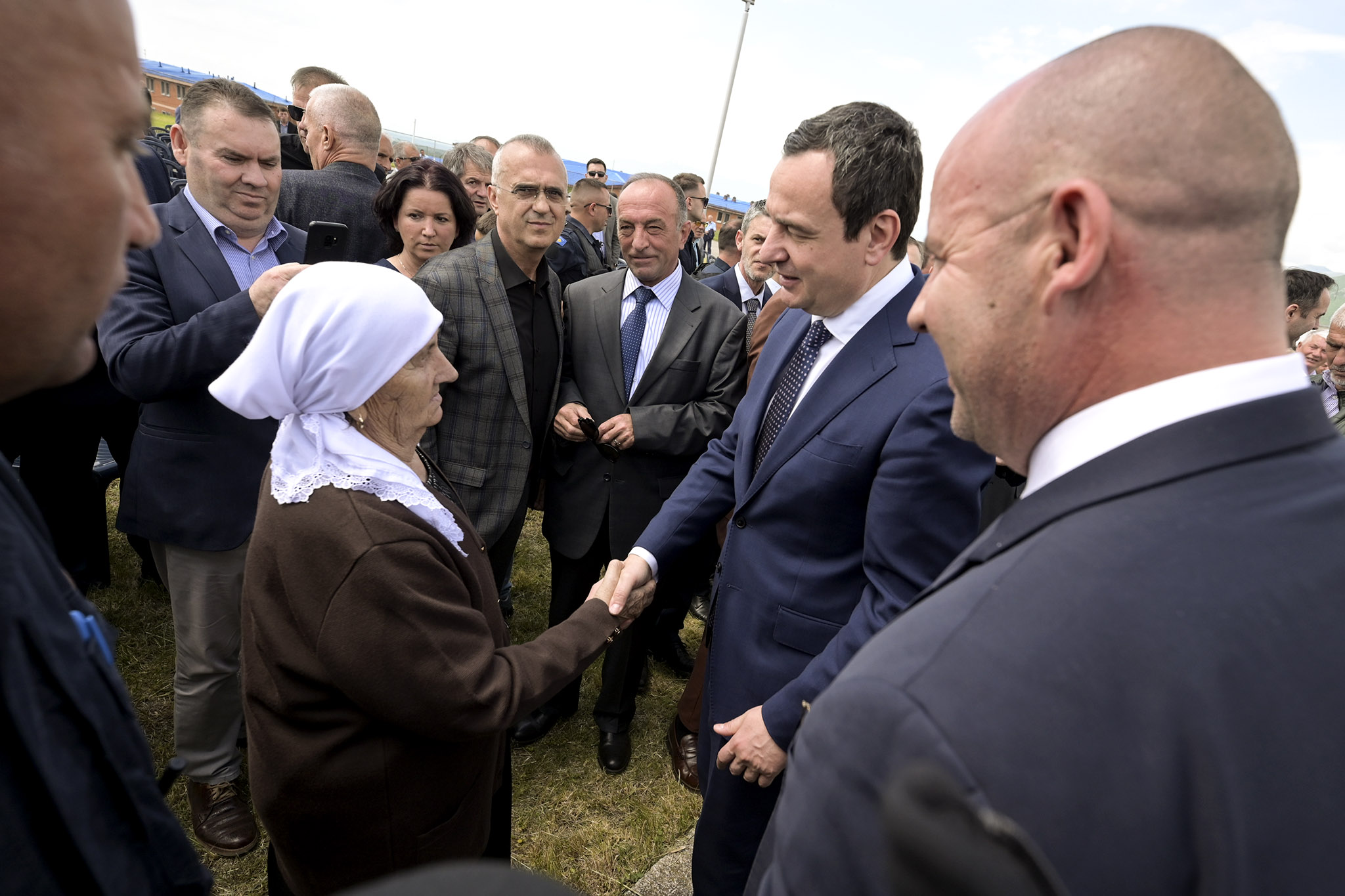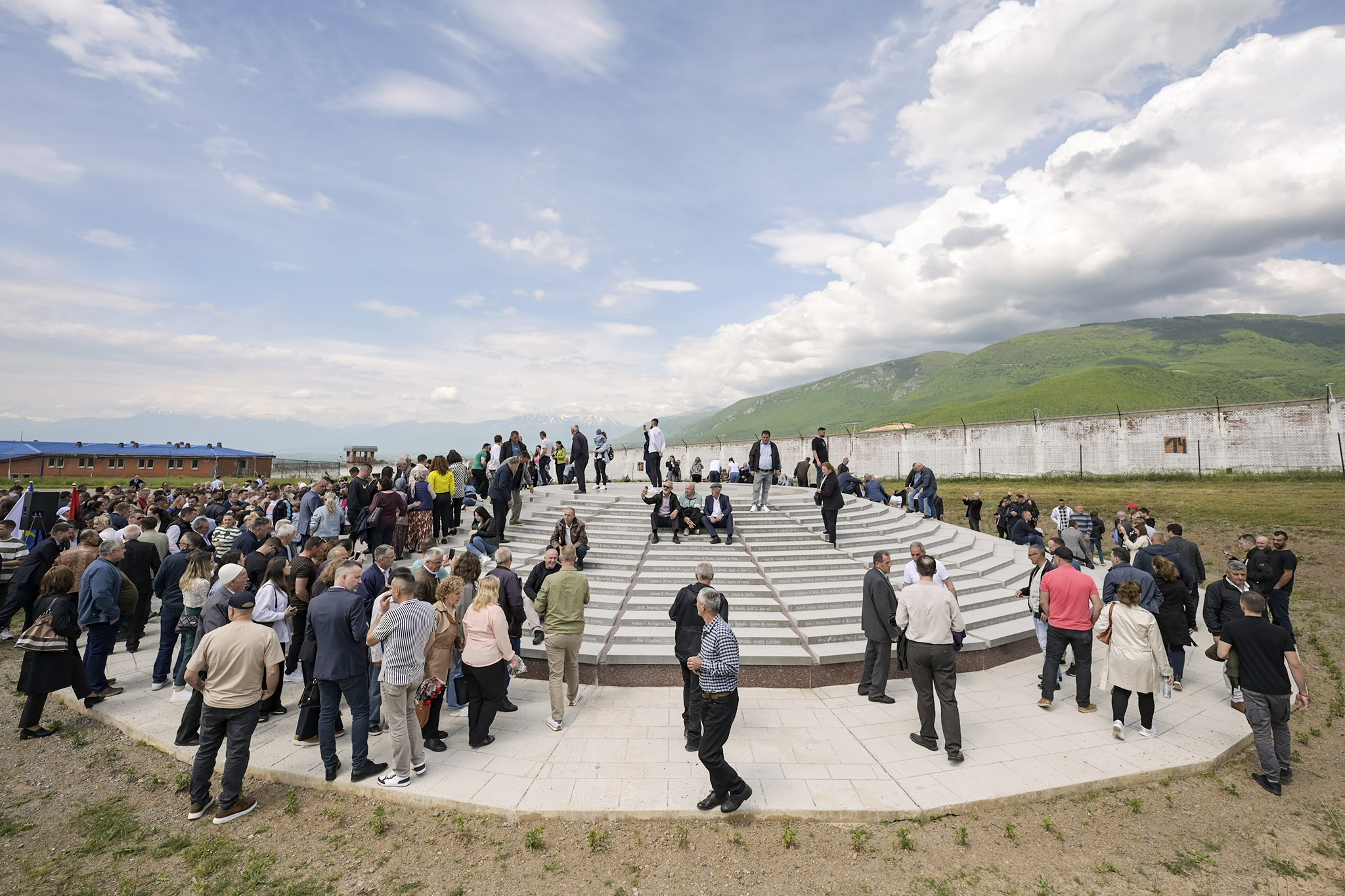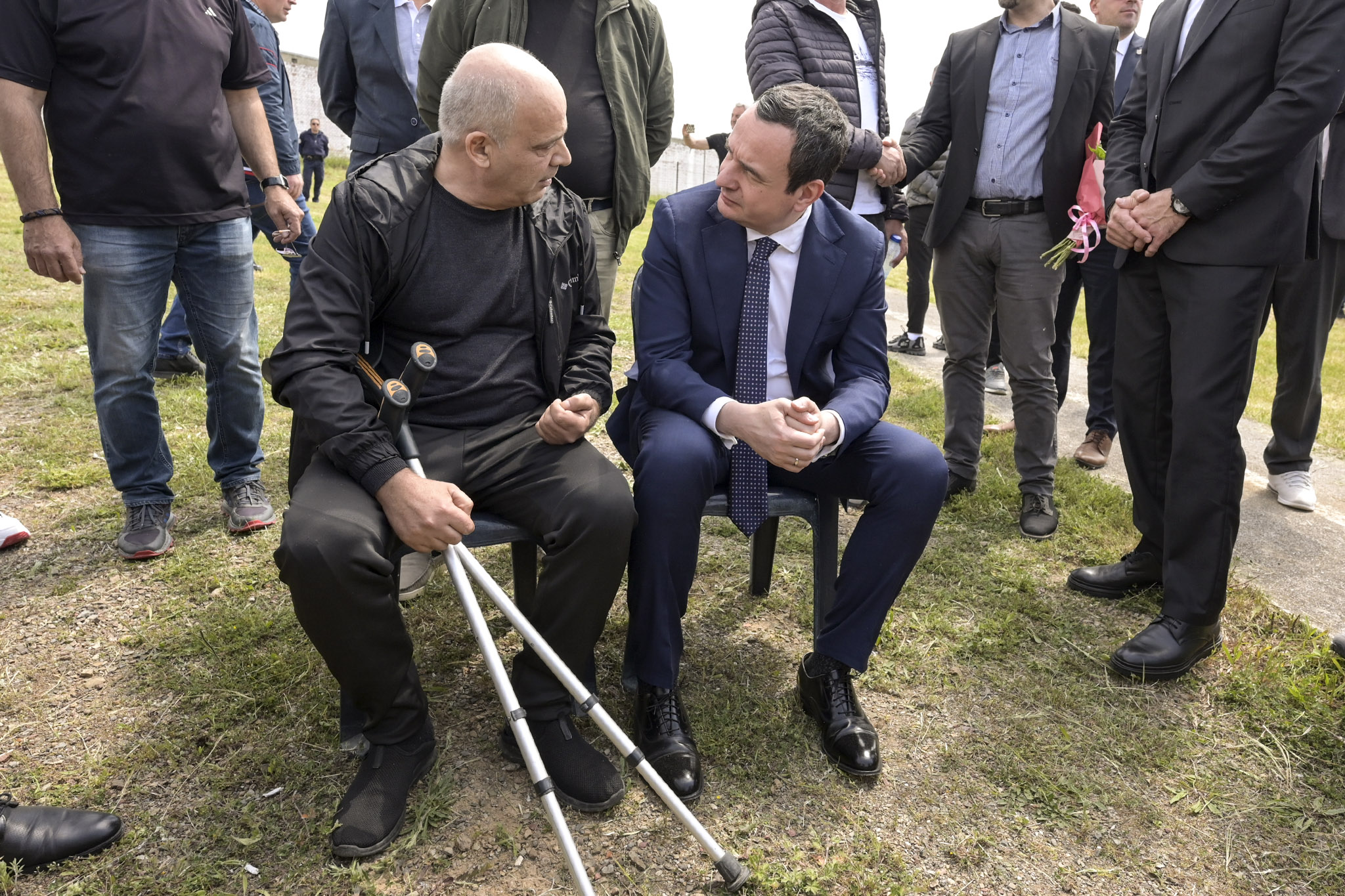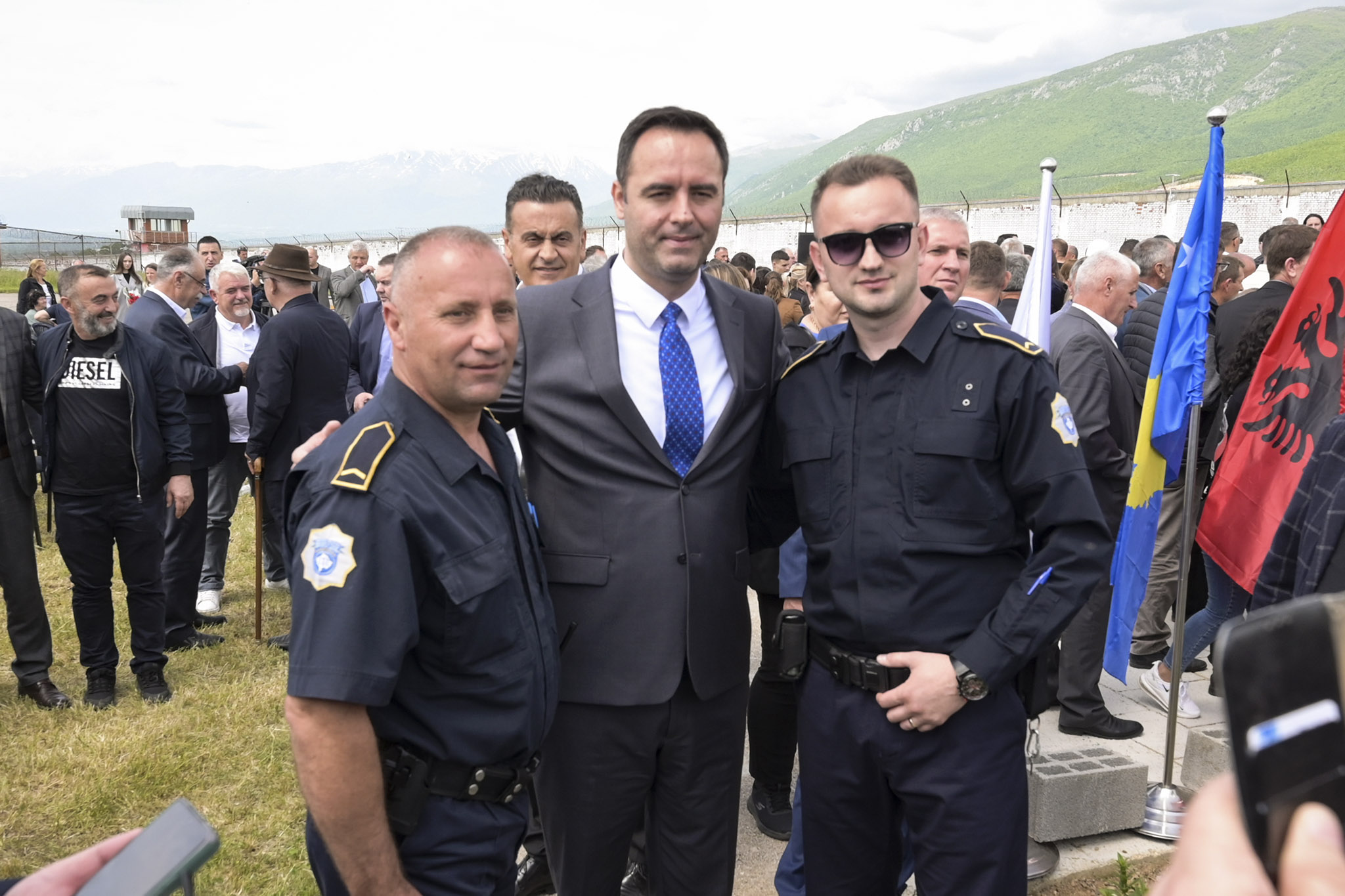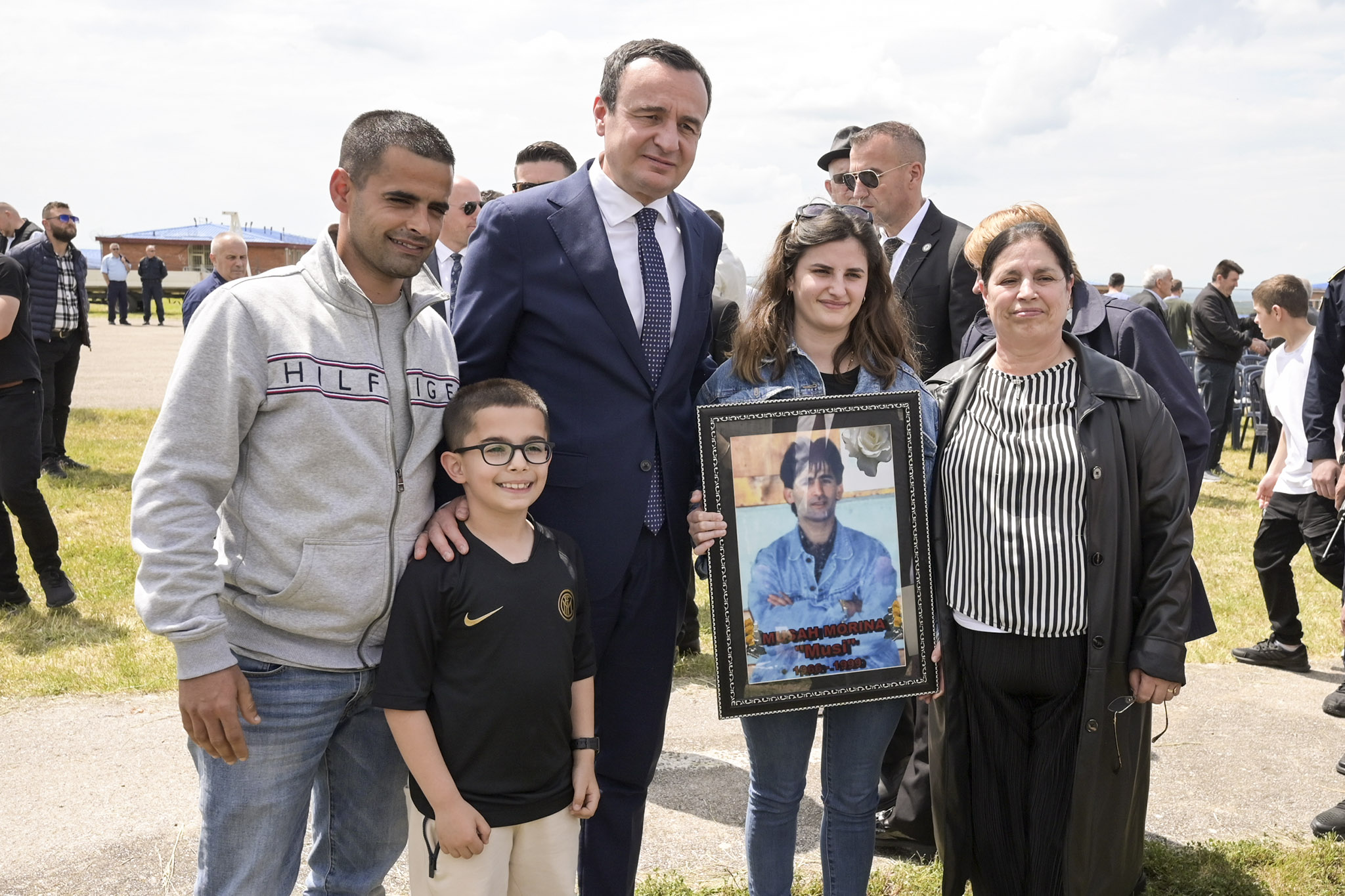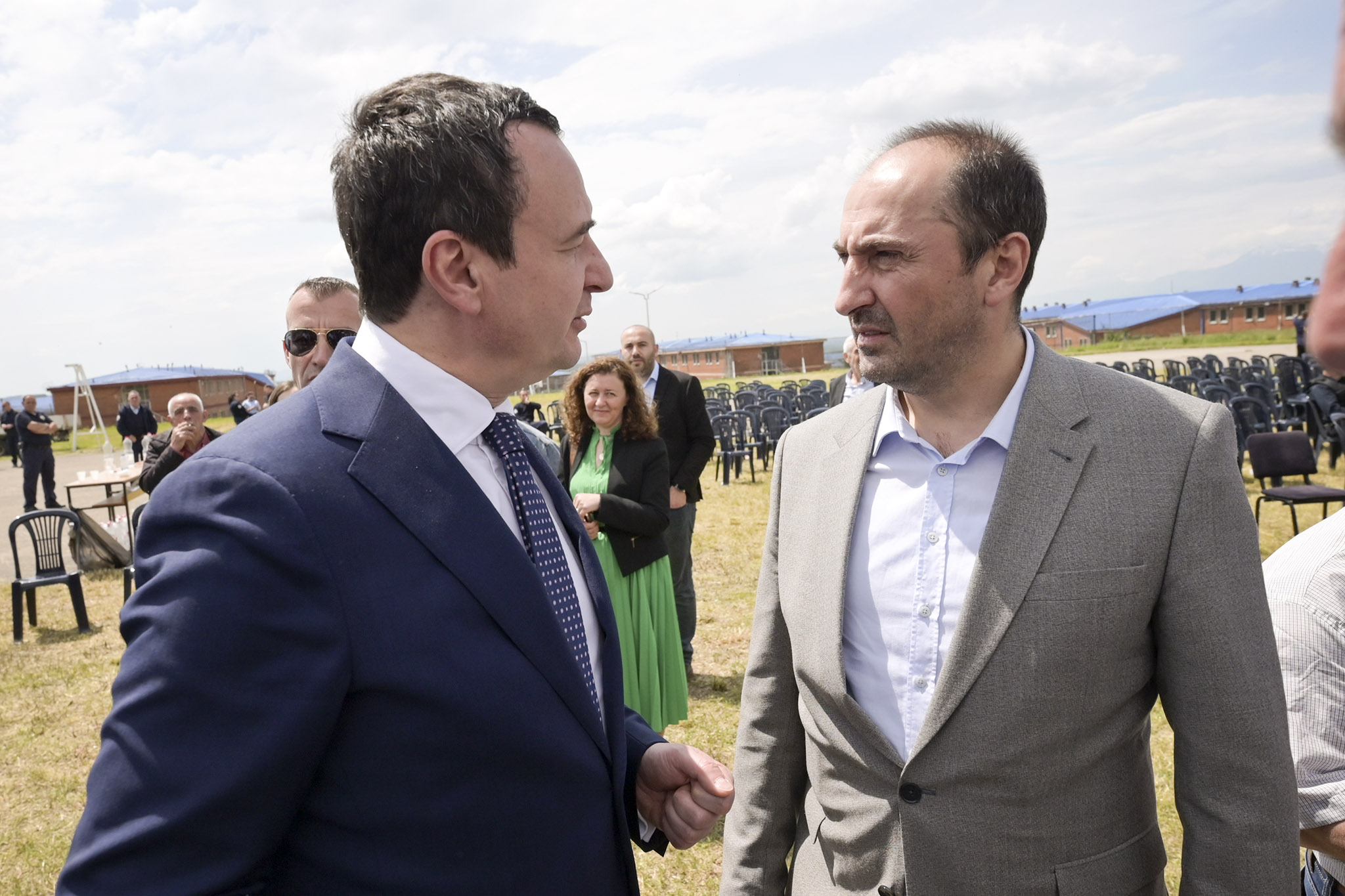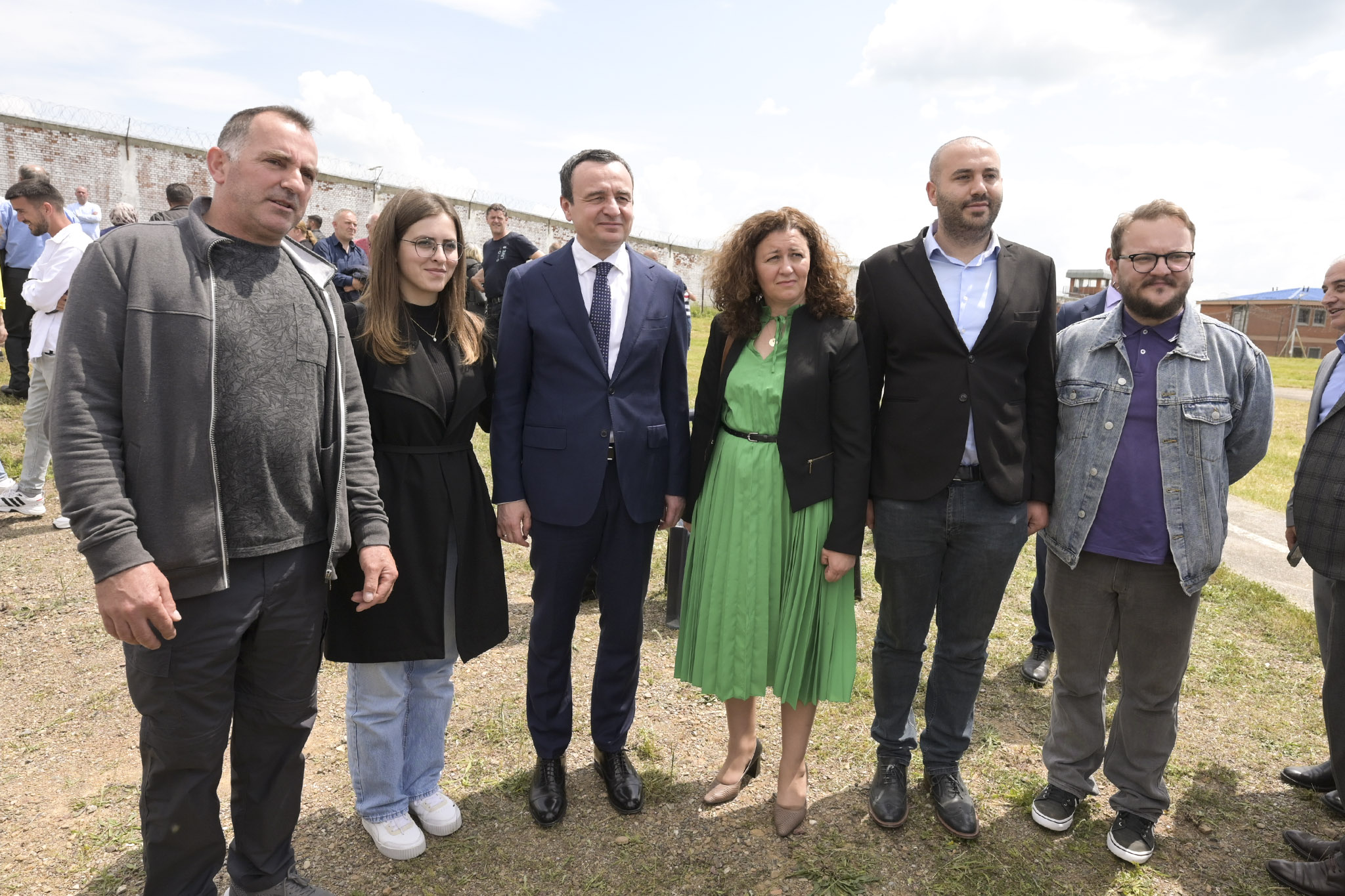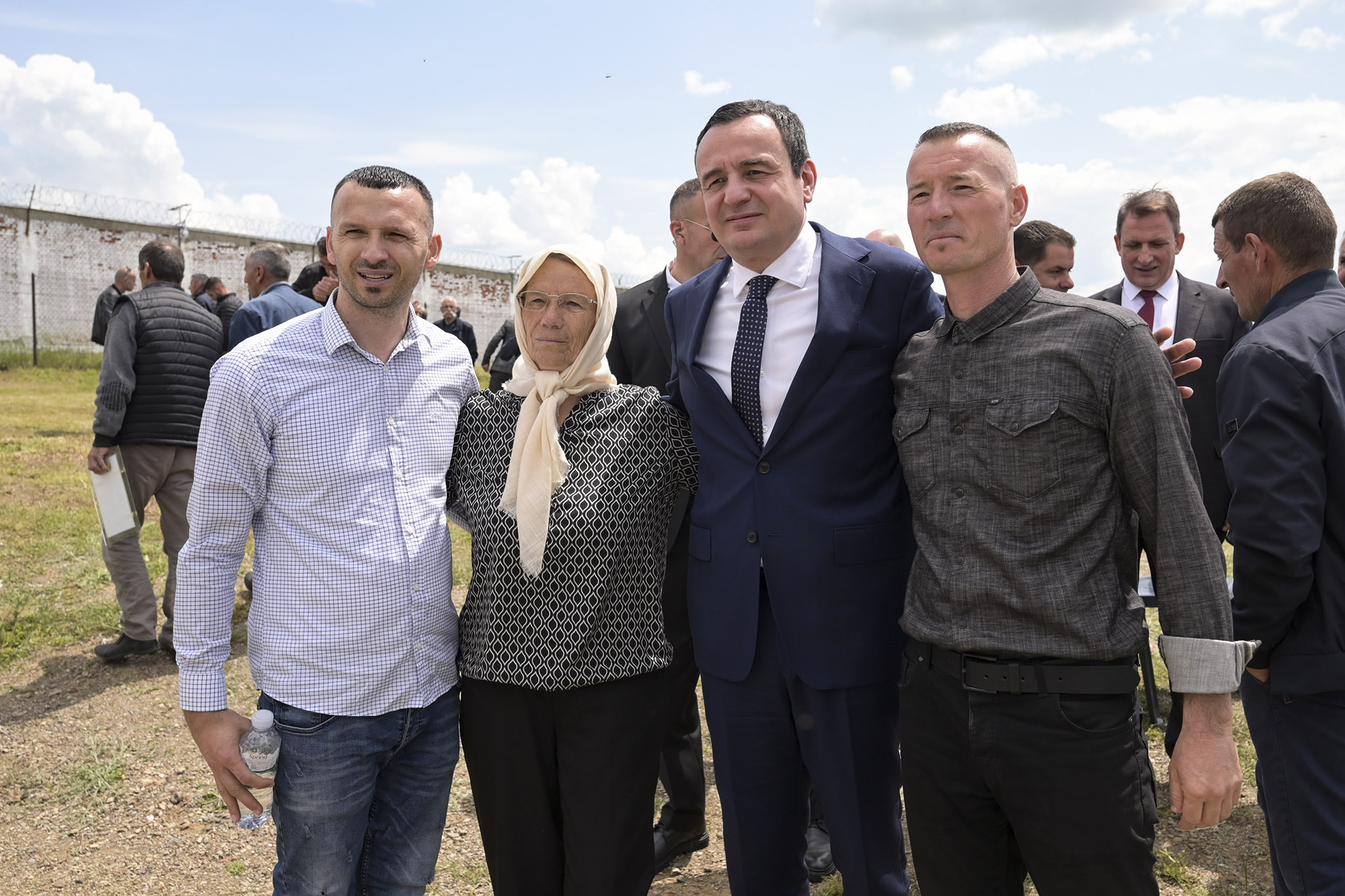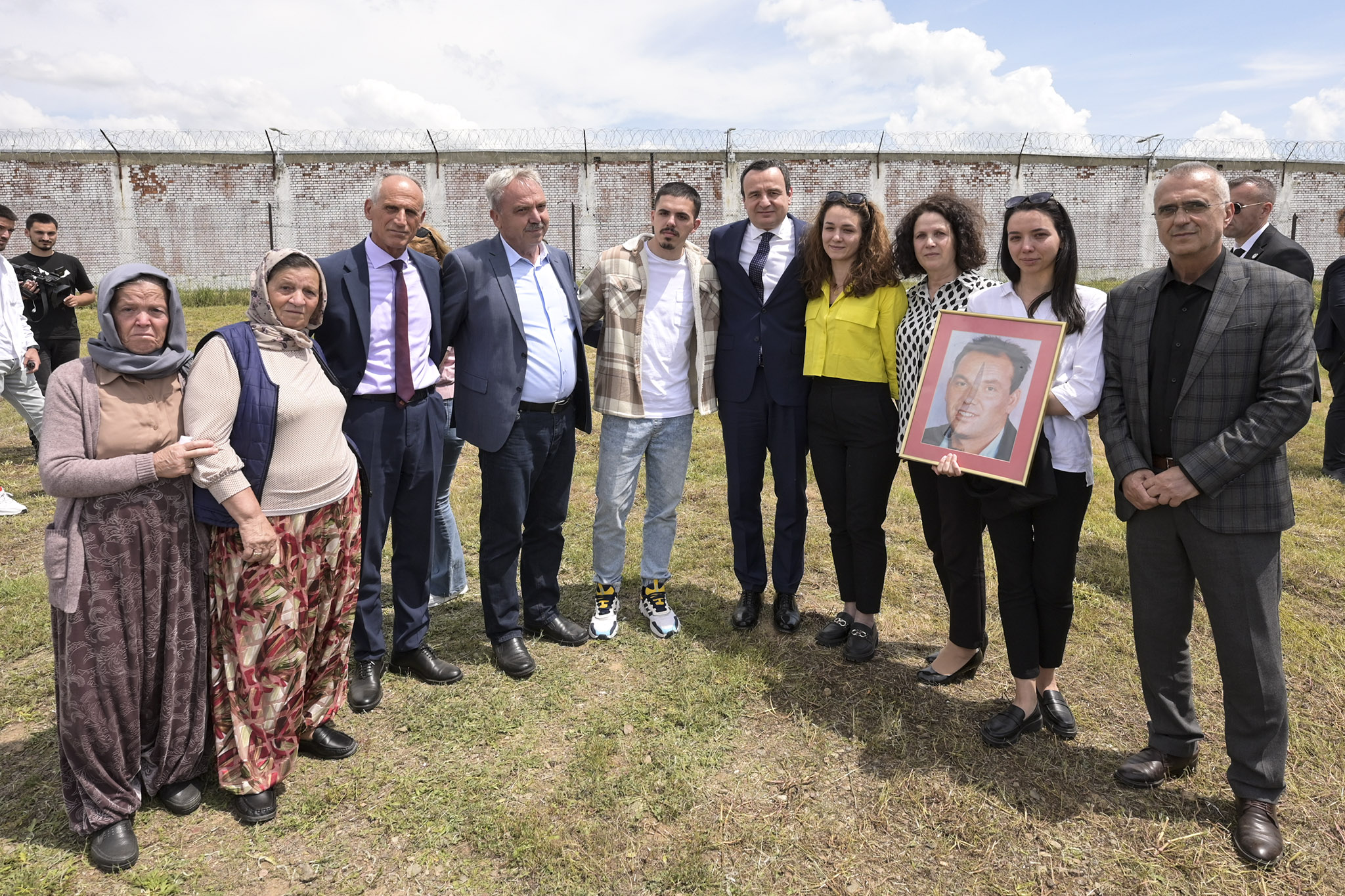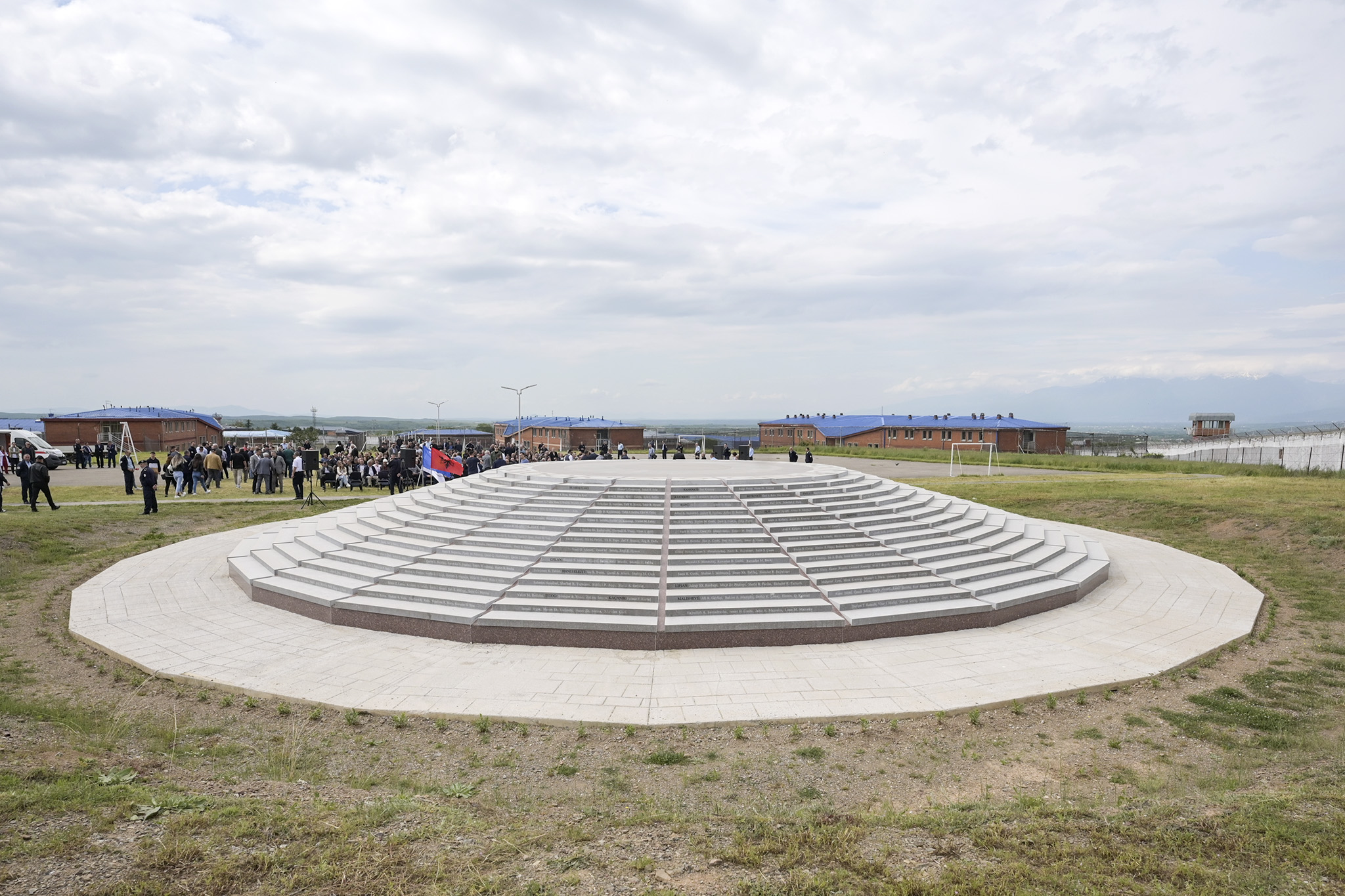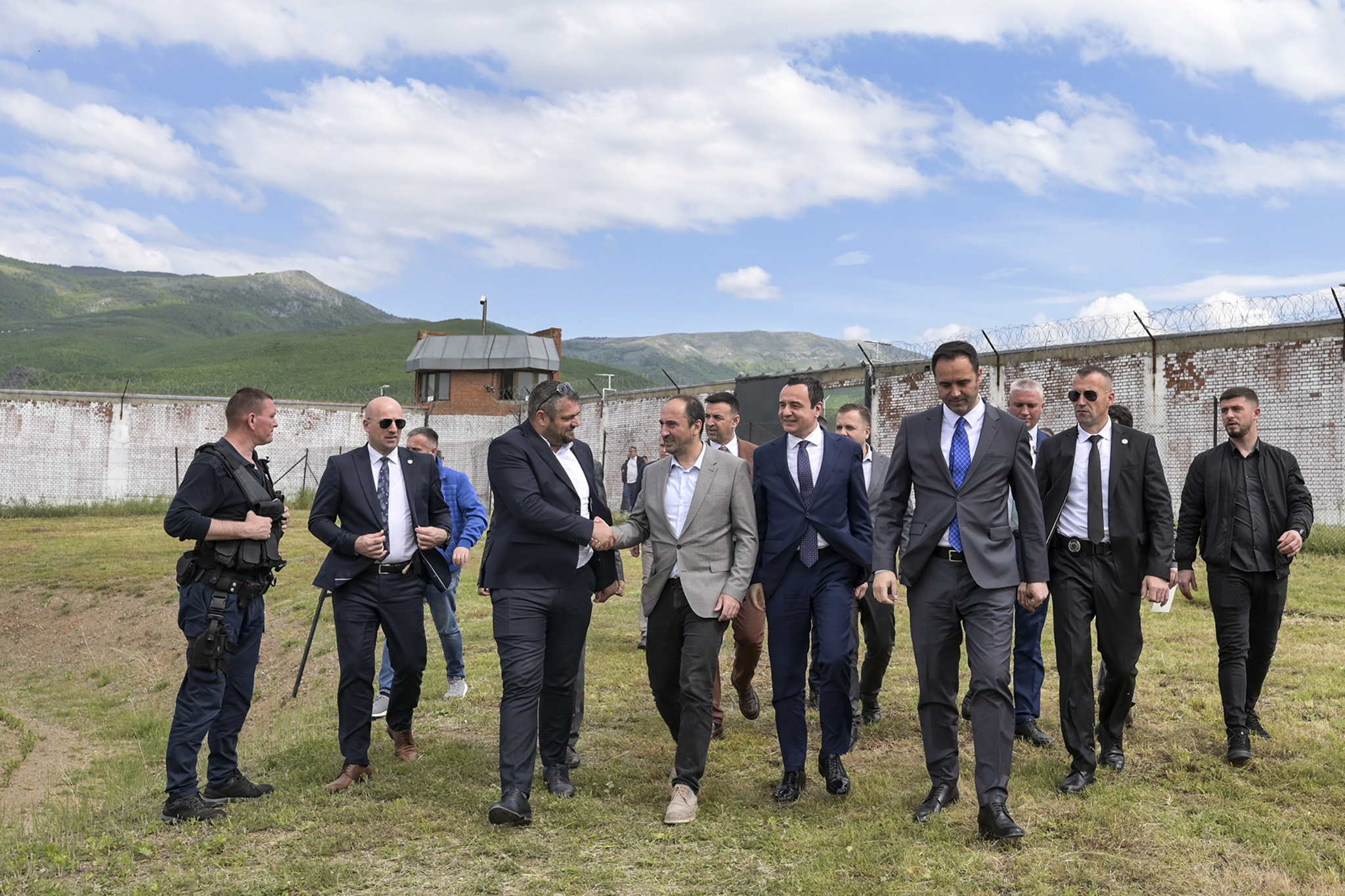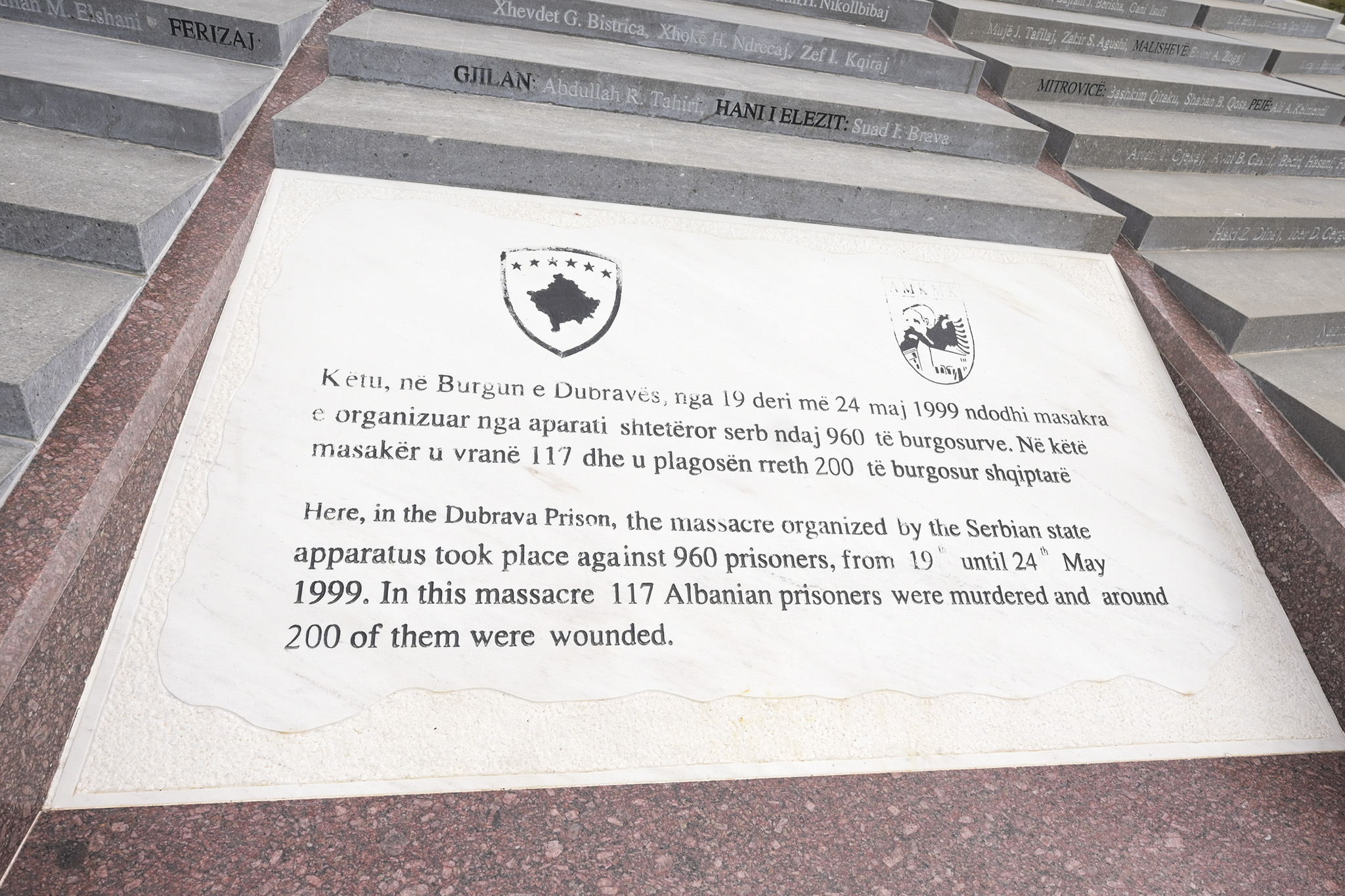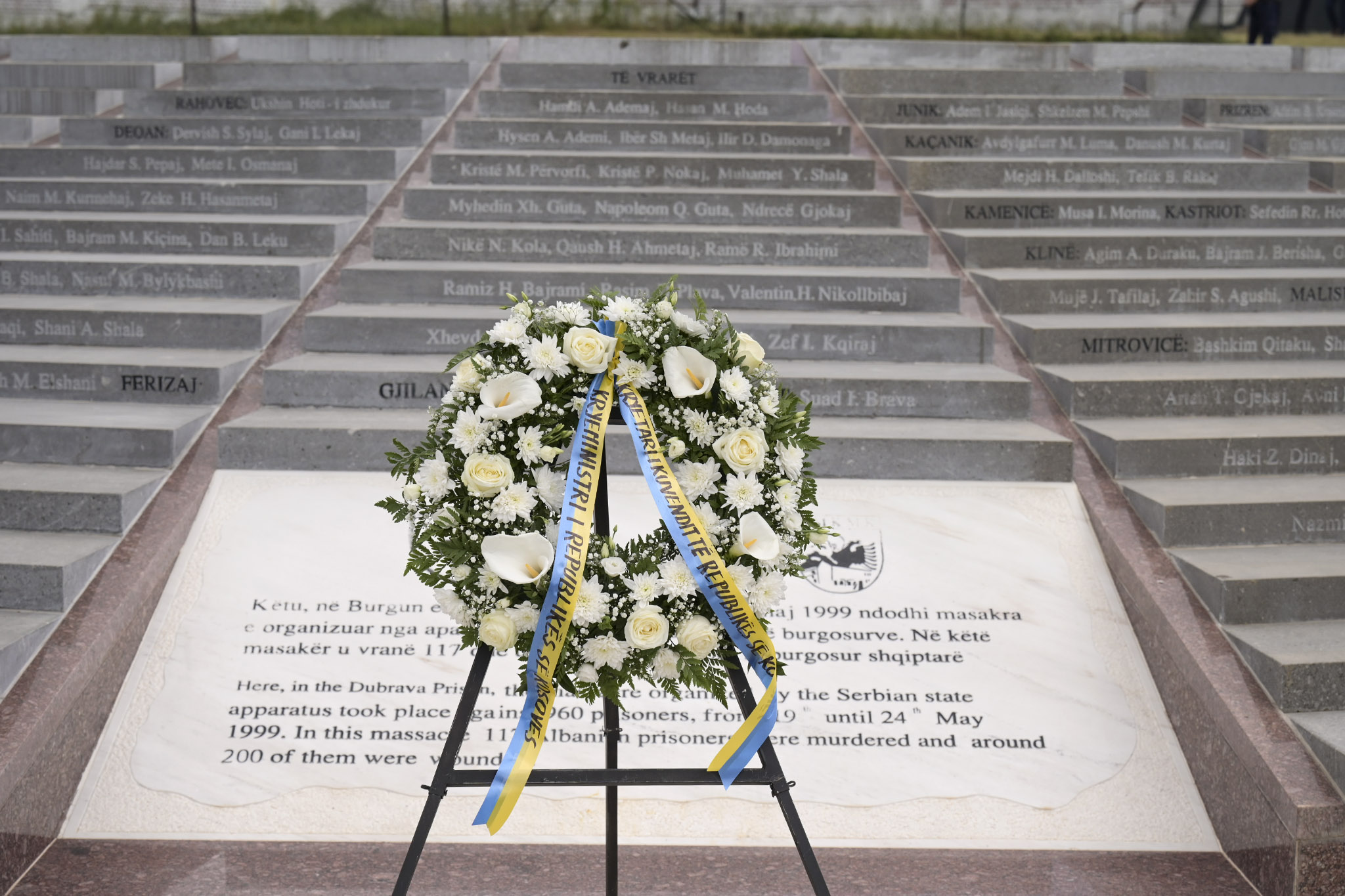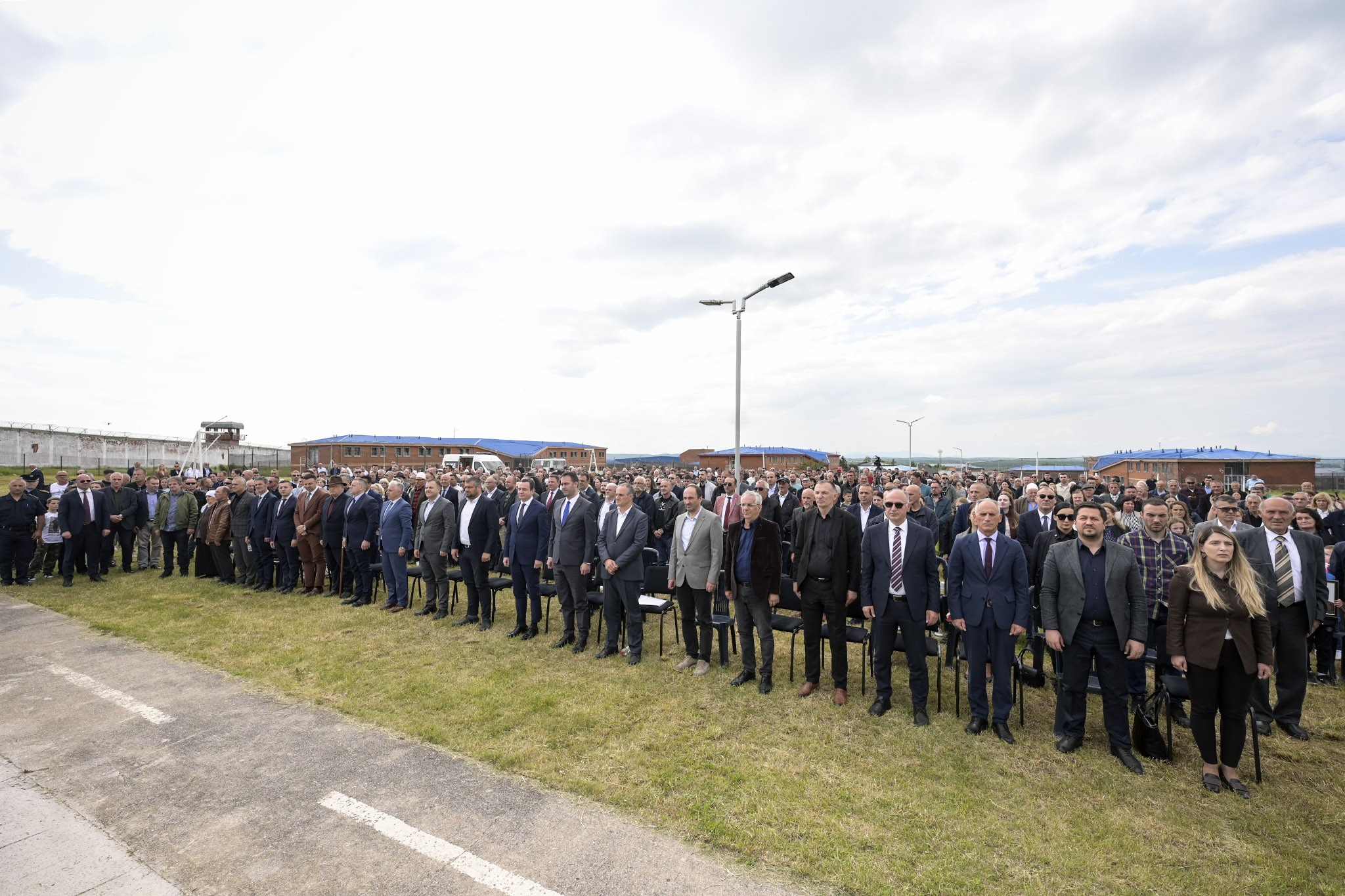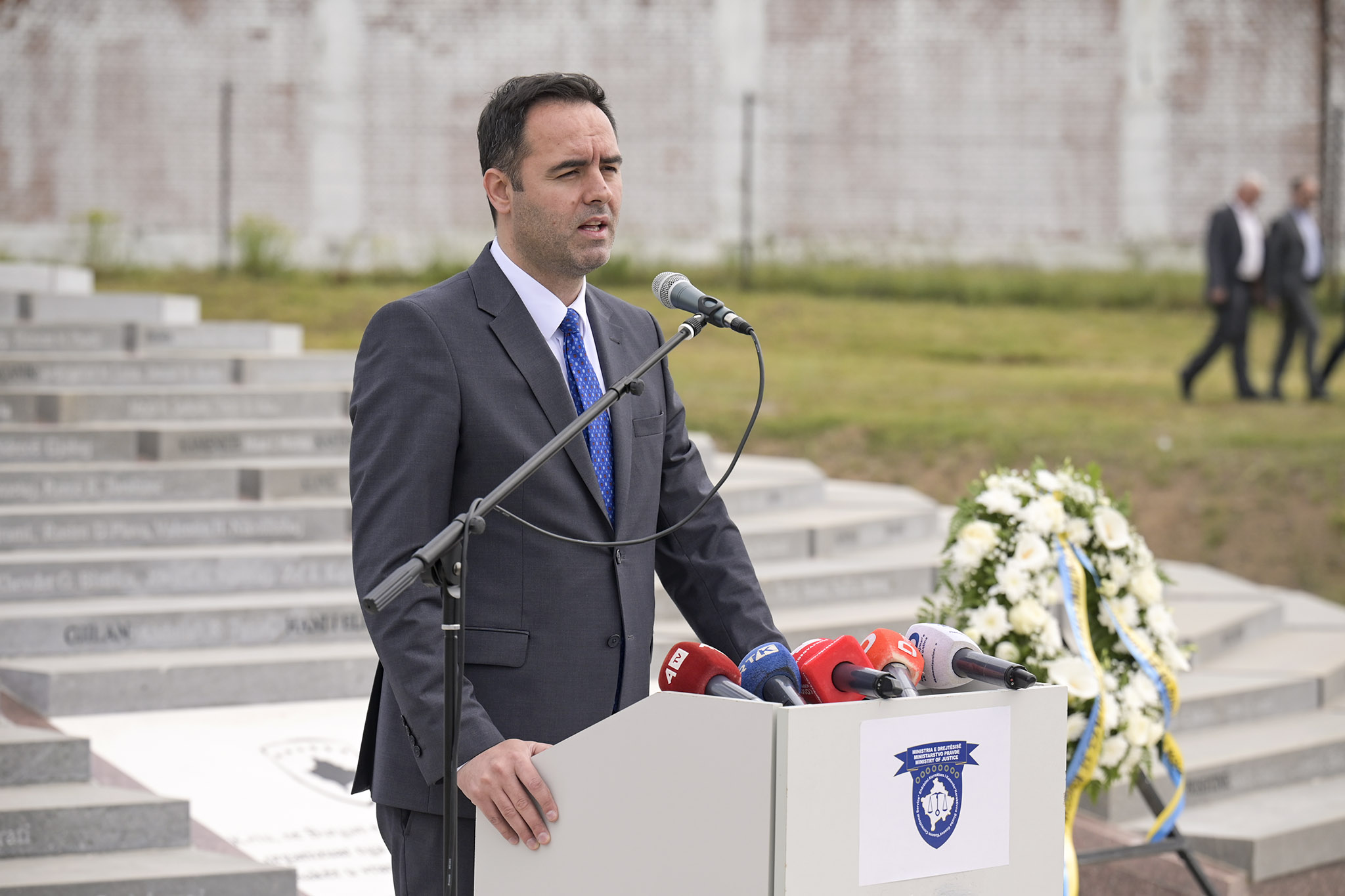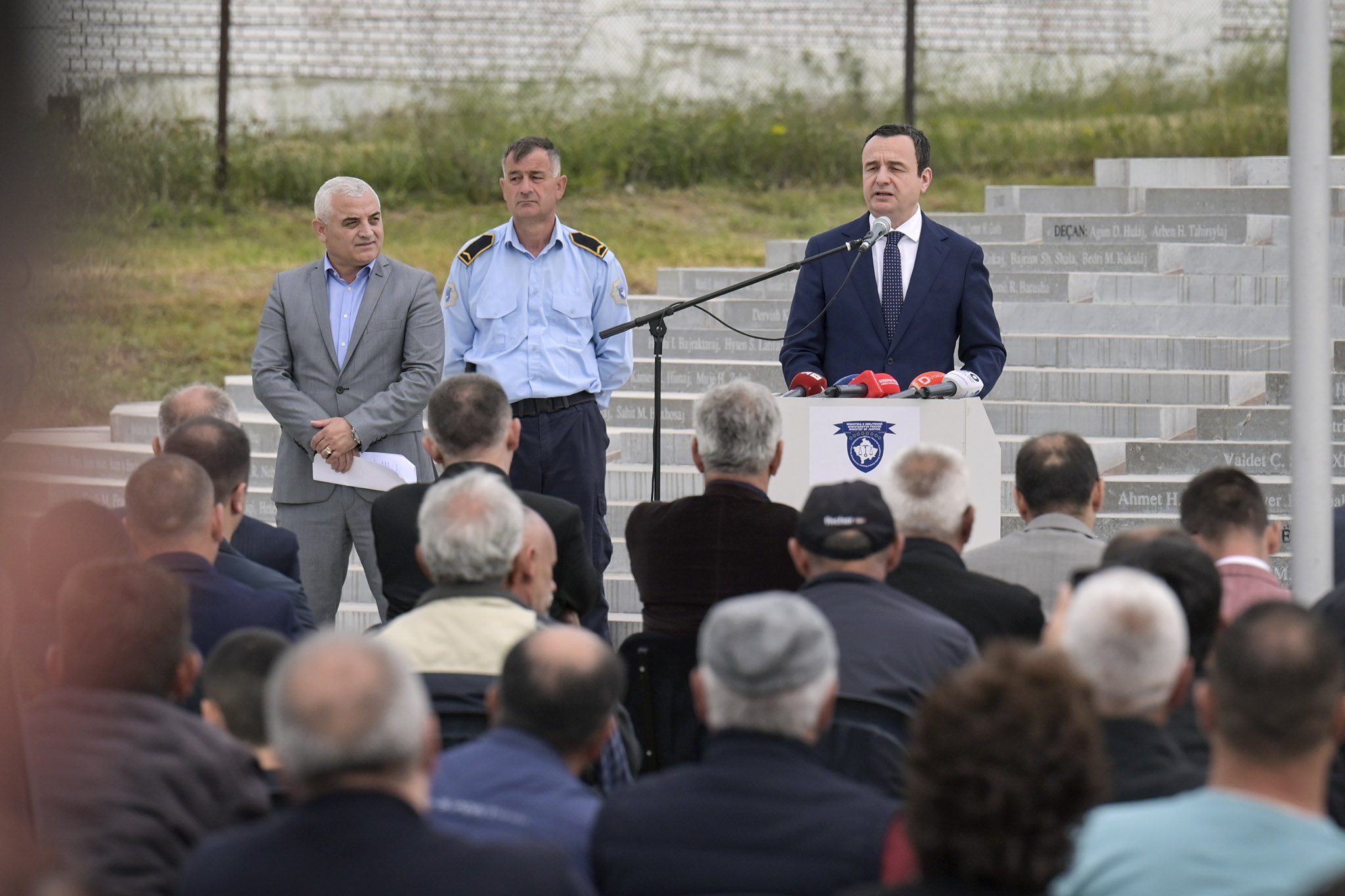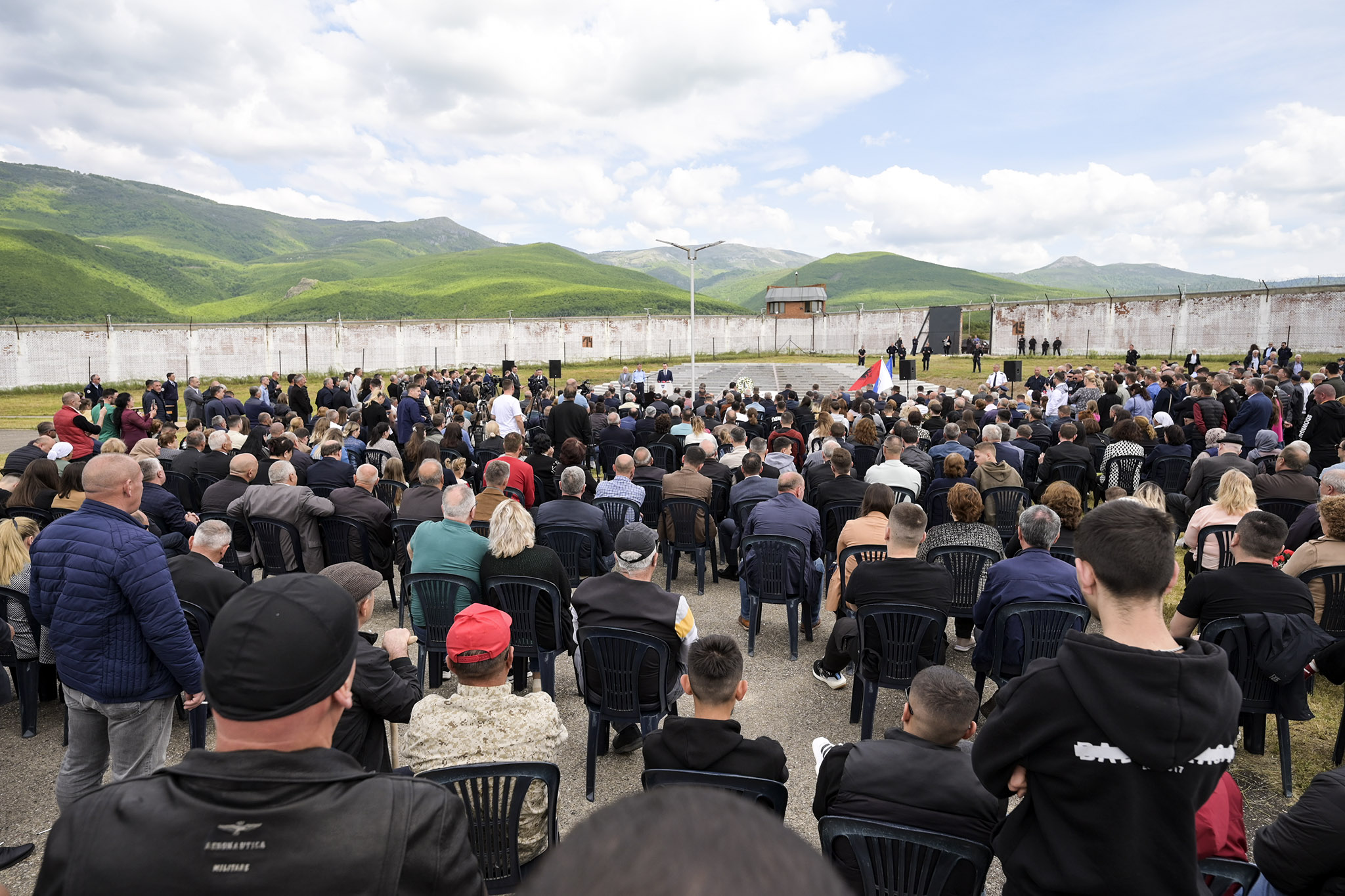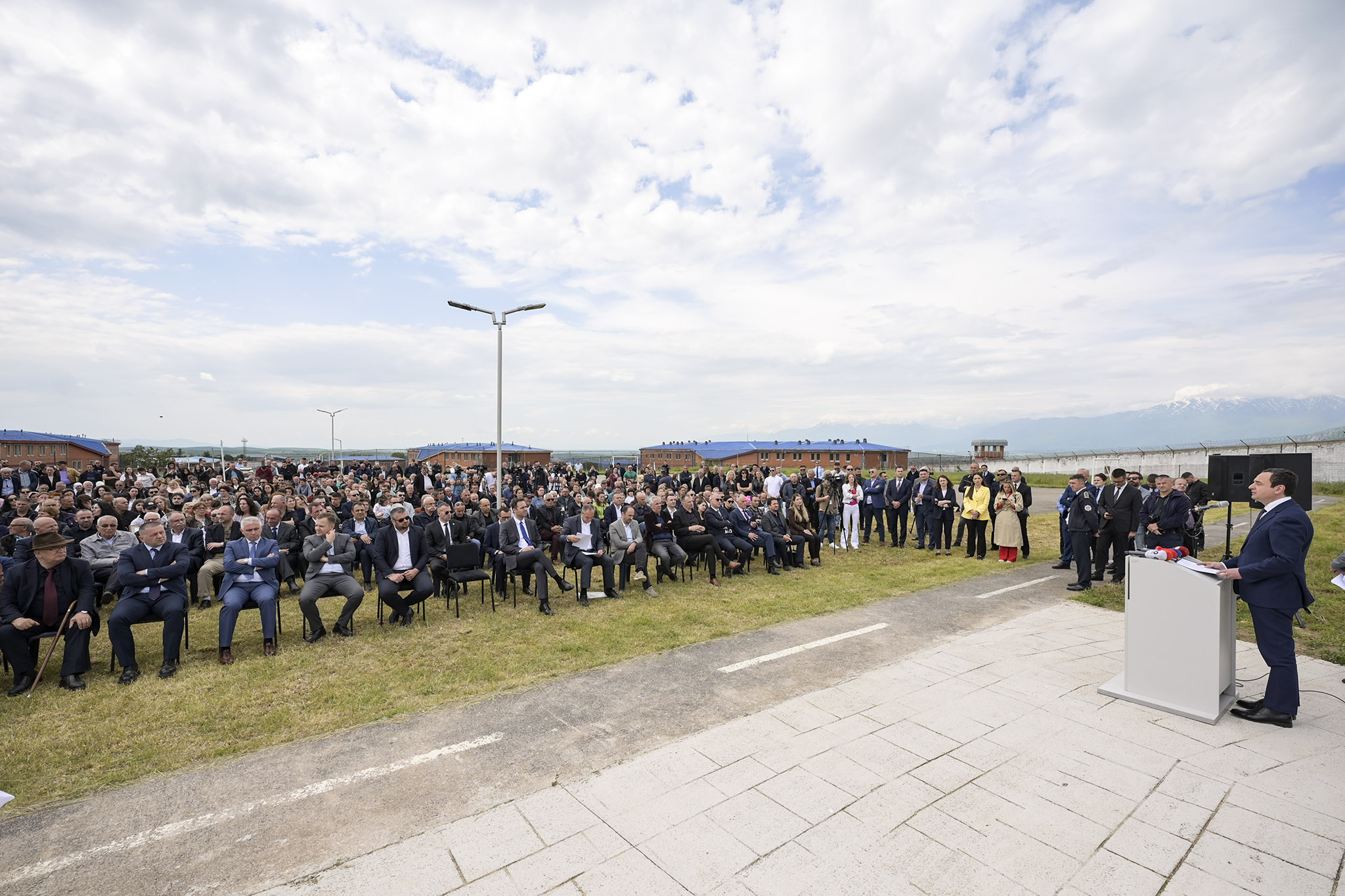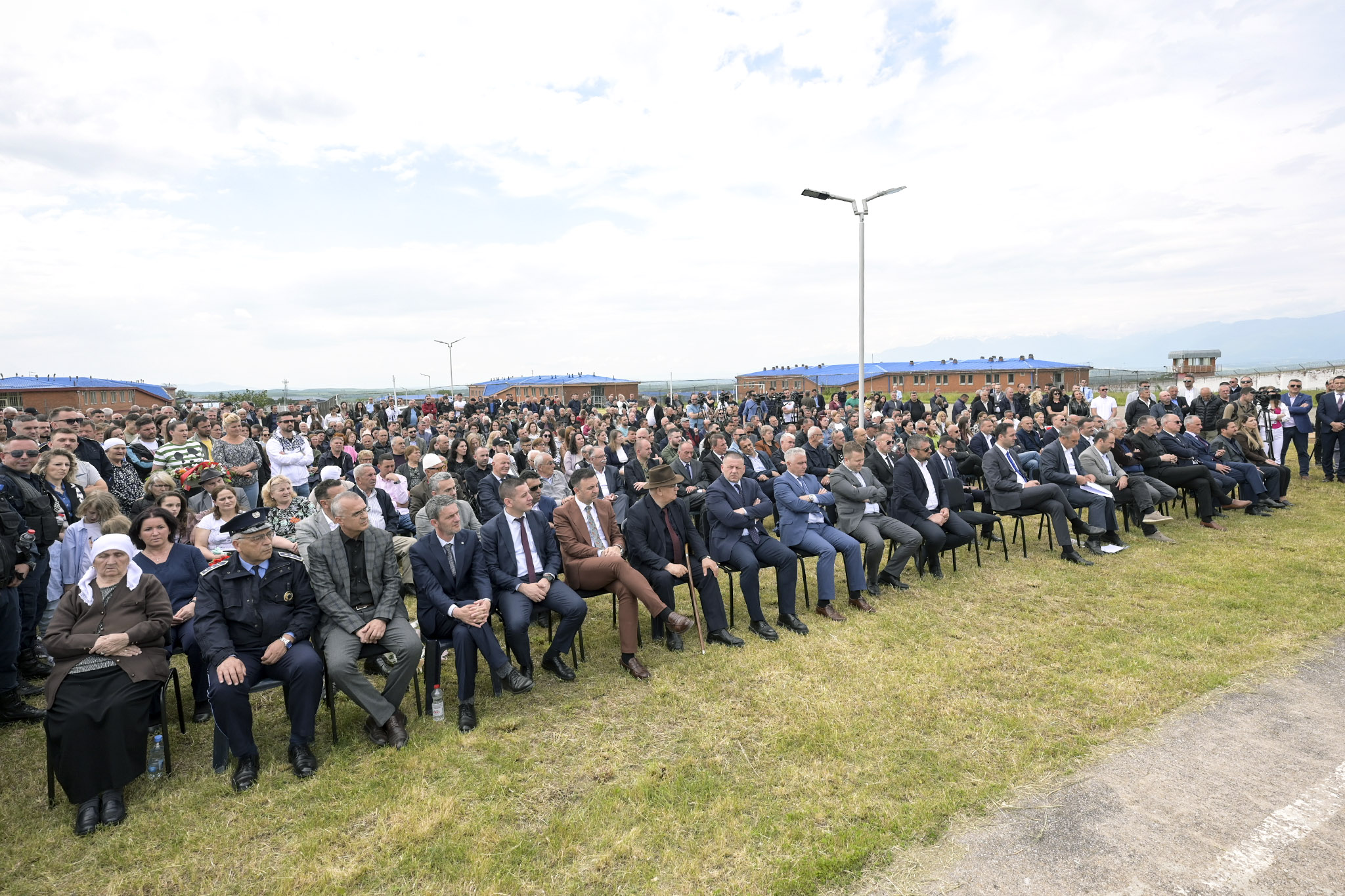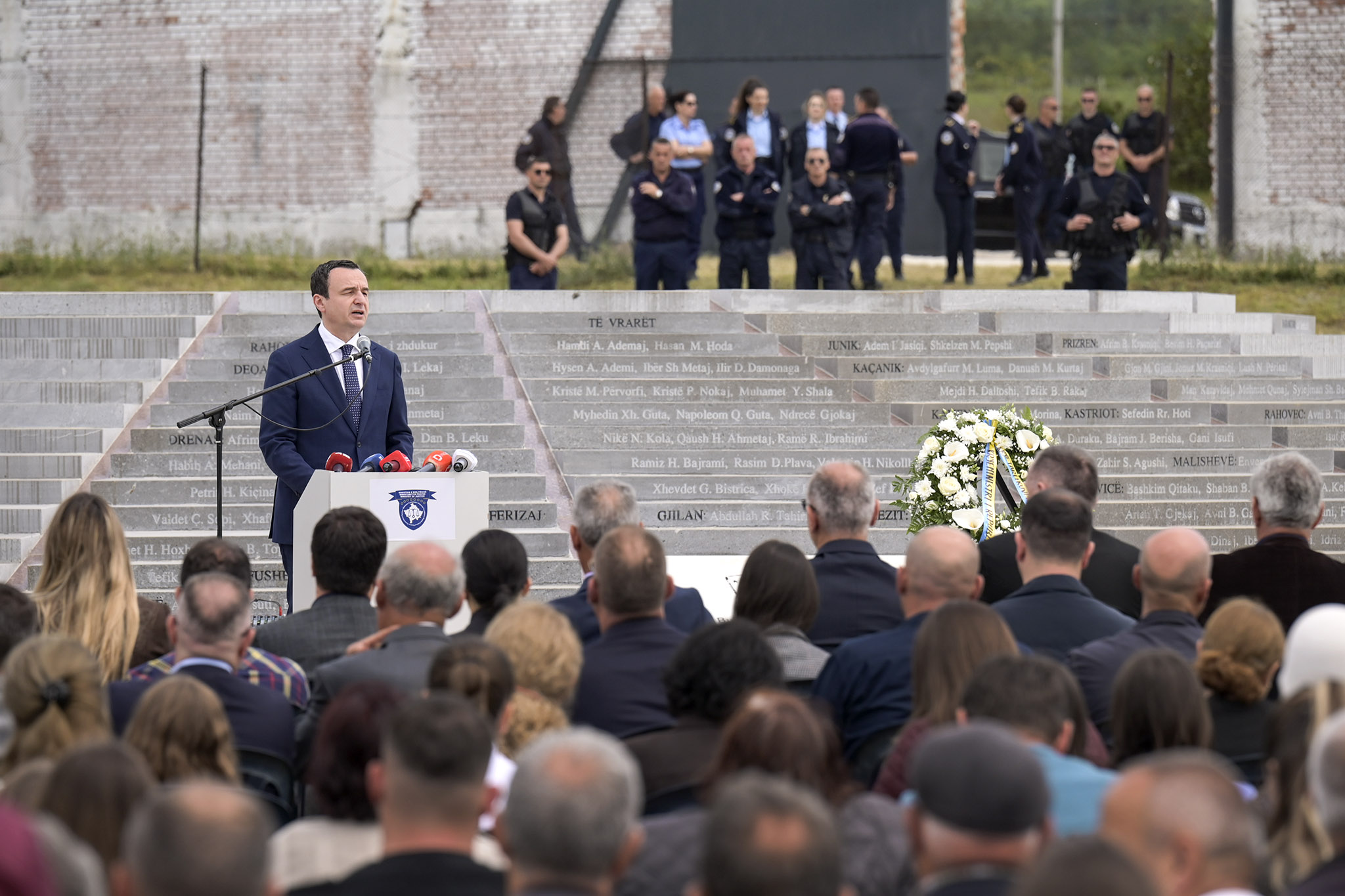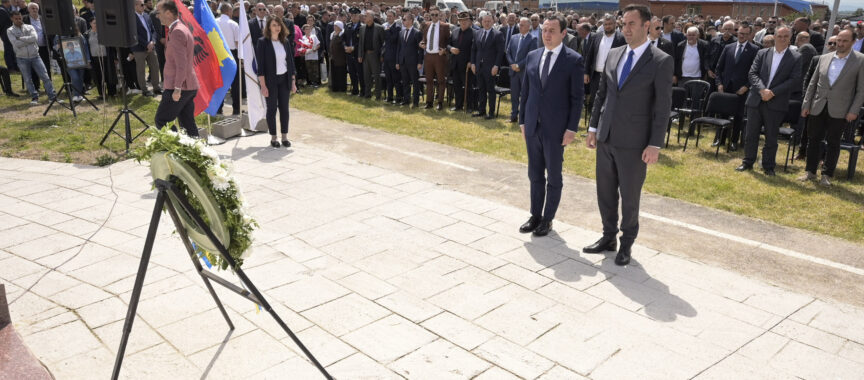Prishtina, 22 May, 2023
In an important historical event like the 24th anniversary of the massacre in Dubrava Prison, the visit of this Correctional Center by the Prime Minister of the Republic of Kosovo, Albin Kurti, was inevitable.
In his speech, Prime Minister Albin Kurti first raised the historical figures of Adem Demaçi, who suffered 28 years of imprisonment, and Ukshin Hoti, who went through prisons from 1981 to 1999, when he disappeared in Dubrava prison on May 16, 1999. , just a few days before the massacre that we are commemorating today.
In front of the audience, the prime minister added that the Albanian political prisoners in Yugoslavia were a separate category that could not be ignored or avoided, which was proven in the last war, when the state of Serbia gathered over 980 political prisoners. Albanians from all prisons, gathering them in Dubrava prison, to eliminate them.
“This plan and this “final solution” devised by Serbia, made Dubrava prison a kind of political concentration camp for Albanian political prisoners. The goal was not only their political elimination, but also their physical disappearance. What happened in Dubrava prison between May 19 and May 24, 1999, was best told by the witnesses of those events, the surviving prisoners of the massacre in Dubrava prison, which fortunately are many”, said the prime minister.
Although the surviving prisoners, such as Enver Dugolli, Nait Hasani, Ukë Thaçi, Asllan Selimi and other perpetrators, have narrated the story of the massacre in Dubrava prison in detail along with the names of those who committed this war crime, the prime minister added that they have not yet been brought to justice, despite the evidence and witnesses.
Furthermore, he assessed that this visit, in addition to reminding him of the massacre committed by Serbia on the Albanian prisoners here, is also to denounce this war crime committed by the Serbian state, because the Republic of Kosovo is our state that is being established and is being strengthened and who does not forget or forgive any crime committed during the war.
“Glory to all the prisoners killed in the massacre in the prison of Dubrava and to every life given on our way for the freedom of Kosovo!” Prime Minister Kurti said at the end.
In the visit to Dubrava, together with Prime Minister Kurti, there were also the Speaker of the Assembly, Glauk Konjufca, the Minister of Environment, Spatial Planning and Infrastructure, Liburn Aliu, and the Chairman of the Government Commission for Missing Persons, Andin Hoti.
The complete speech of Prime Minister Albin Kurti:
The Honorable Speaker of the Assembly of Kosovo, Mr. Glauk Conjufca,
The Honorable Minister of Environment, Spatial Planning and Infrastructure, Mr. Liburn Aliu,
Honorable Enver Dugolli, deputy in the Assembly of the Republic of Kosovo,
Honorable Nait Hasani, former political prisoner, former MP and ambassador,
Dear Bujar Dugolli, Andin Hoti, Bajrush Xhemajli, Bislim Zogaj, General Kudusi Lame,
Dear Members of Parliament and Deputy Ministers,
Dear ex-prisoners,
Dear family members of the killed, martyrs and survivors of the Dubrava massacre,
Dear attendees,
Ladies and gentleman,
Sisters and brothers,
On every historical date like today when important events from the past are commemorated, beyond the factual data, a not simple problem is presented to us: how should all these stories of massacres, wars, imprisonments, deportations and political battles be read? What feeds and cultivates the collective consciousness of a nation that for years and years and centuries, tries without ceasing to achieve freedom?! Or articulated a little differently: how can the historical consciousness of the Albanian people be defined?
One of the ways to understand the political history of Albanians during the period of Yugoslavia is by tracing the fate of generations and groups of political prisoners and reading about their imprisonments in chronological order. During this long period of more than half a century, after the Second World War, when the Albanians in Yugoslavia were the most oppressed and politically discriminated ethnic community in Europe, political prisoners produced two great political ideologues, one at the beginning and one at the end of that Yugoslavia. I think you can guess who I’m talking about. For Adem Demaçi, who suffered 28 years of imprisonment from the end of the 50s to 1990, and for Ukshin Hoti, who went through prisons from 1981 to 1999, when he disappeared in Dubrava prison here on May 16, 1999, a few days before the massacre that we are commemorating today and only one day before his imprisonment ended on May 17 and his third sentence of 5 years in prison.
Their personal fate is so strongly shaped by the political fate of the Albanians of that time that their autobiographies and biographies can be read as the political history of the Albanians in Yugoslavia. The works “Book of self-denial” and “Quantum love of so-and-so” written by Adem Demaçi, or “Political philosophy of the Albanian issue” and “Conversation through bars” by Ukshin Hoti, are two fundamental reference sources to understand the life of Albanians under the oppressive dictatorial and fascist regimes of Yugoslavia in general and Serbia in particular.
Albanian political prisoners in Yugoslavia, who generally represented the pure national political activism of the time, were like a category of their own, which could neither be ignored nor avoided. Because it was their very spirit and work, inherited and passed on from one group to another, from one illegal organization to another, which produced the political and military organization that brought about the liberation of Kosovo. Therefore, even in the last war, the state of Serbia gathered over 980 Albanian political prisoners from all prisons, bringing them to Dubrava prison, to eliminate them.
This plan and this “final solution” devised by Serbia, made Dubrava prison a kind of political concentration camp for Albanian political prisoners. The goal was not only their political elimination, but also their physical disappearance. What happened in Dubrava prison between May 19 and May 24, 1999, was best told by the witnesses of those events, the surviving prisoners of the massacre in Dubrava prison, which fortunately are many.
How was the mass murder and massacre of Albanian prisoners organized by the Dubrava prison authorities, by the Serbian police and by the ordinary prisoners mobilized by them? The surviving prisoners have recounted the story of the massacre in Dubrava prison, sometimes in detail, day by day and hour by hour, along with the names of those who committed this war crime, for which they have not yet been brought to justice, despite the evidence and witnesses. It was narrated by Enver Dugolli in his book “Circle of (un)closed prisons”, Nait Hasani in his work “Still alive”, as dozens of other survivors have narrated about Ukë Thaçi in his book about the scenarios of the massacre in the prison of Dubrava, just like recently Asllan Selimi in the newly published book “Terror has a name”.
While I, myself, have heard these cruel events since then, shortly after the Dubrava prison massacre, from these same survivors, with whom we were then prison mates in Nis, Pozharec and Çupri. I have heard them narrated by Nait Hasani, Liburn Aliu, Bislim Zogaj, Enver Dugolli, and many, many others.
Of course, without being sure that 24 days later, we will go together to Dubrava prison as we came today, precisely to remember the massacre committed by Serbia on Albanian prisoners and to denounce this war crime committed by the Serbian state. Moreover, all this is happening in completely different circumstances: with the Republic of Kosovo, with our state that is rising and getting stronger and which does not forget or forgive any crime committed during the war. Our coming here today is an obligatory attention and a necessary care for the legacy of the war of 1997-1999 in Kosovo, for justice and before history.
Glory to all the prisoners killed in the massacre in Dubrava prison and to every life given on our common path for the freedom of Kosovo!
Last modified: May 22, 2023
